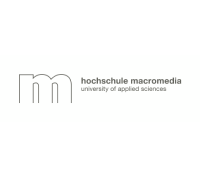There are various forms of universities in Germany. Universities offer mostly theoretical knowledge and usually offer a wide range of different themes. However, some are specialized in a specific subject, and in this case they are called technical universities (TechnischeUniversitäten, TU) or education colleges (PädagogischeHochschule, PH).Art and music colleges are suitable for those with a particular talent in music or arts. At the Universities of Applied Sciences (Fachhochschulen and Hochschulen fürangewandte Wissensch aften), more emphasis is placed on practical training on a subject.
You will have longer-term work or spend practically half-term as company employees. Dual universities combine academic studies and professional training. You can study the following degrees at German universities:
1. Bachelor’s degree: Bachelor’s is the initial academic title recognized in the international labor market. During a degree, you acquire basic knowledge of a course lasting from six to eight semesters. This may sometimes consist of two issues or one important and two minor issues. Once you have successfully completed your degree, you can begin your career or take the next academic diploma: master’s. Typical degree programs include the Bachelor of Arts (BA) for Humanities and Social Sciences, the Bachelor of Science (B.Sc.) for Technical and Scientific Studies and the Bachelor of Engineering (B.Eng.) For Engineering Sciences .
Pros: After this degree you can either go directly to employment or apply for a Masters degree in a topic area that interests you.
2. Master’s Degree: In German universities, Master’s is the academic title followed by Bachelor’s. The prerequisite is that you have successfully completed a Bachelor’s (or equivalent). During a Master program, you can deepen and expand your knowledge or specialize in a specific field with a duration of two to four semesters. If you have an undergraduate degree in biology, you could, for example, take a master in bioinformatics.
For postgraduate courses, there is also a choice between Master of Arts (MA), Master of Science (M.Sc.) and Master of Engineering (M.Eng.).
Curricula at German universities have recently been reformed. Although you may come across traditional Magister (Artium) diplomas and courses, it is similar to Master’s.
Pros: The program will enable you to specialize in a specific area. This knowledge will give you many choices in the job market.
3. Doctorate: During your doctoral studies, you write a research paper on a specific topic (dissertation or doctoral thesis). The duration of the Ph.D. depends on the research topic. Most last between two and five years. Doctoral studies are completed with a PhD degree. There are two types of doctoral studies: in the traditional model, you work independently with your dissertation and will be supervised by a professor from the faculty. If you want to do a PhD, you will need to find a PhD supervisor in advance. Alternatively, you may have a fixed period of three years in which you work in your dissertation with many supervisors. You need to clarify in advance which university and which research focus is available on your subject.
4. Staatsexamen (State Examination): Some curricula lead to state examination. This means that the final examination is organized and held by a government council. The examination rules are not determined by the university, but by the federal state. If you want to work as a doctor, lawyer, teacher or pharmacist in Germany, you will need a state examination. You can carry out the first state examination after theoretical academic studies in law, medicine and pharmacy or after teacher training courses. After that, you will be prepared for the second state examination with a practical training period.
How it works:
Academic year:
The academic year is divided into 2 semesters. The winter semester starts in September / October, and the spring semester starts in March / April. In the Universities, the courses start either in the winter or spring semester (except for medical / veterinary / dental schools that start only winter, with a few exceptions). During the semester, courses last for 4 months. In this way, students have time to study, prepare their work and seminars and participate in practical exercises and exams.
German language:
Knowledge of the German language is necessary for attending courses to obtain a basic degree in Germany. German language certificate requires DSH / Deutsche Sprachprüfungfür den Hochshulzugang (German Language Test for University Admission) equivalent to level C1. Each level lasts 2 months at German language institutes and you have to complete a total of 5 levels (A1, A2, B1, B2, C1). If these are going to be done in Germany or Cyprus, it depends on each student. But we would suggest to be done in Germany because in this way you talk and engage in German, and so learn the language better.
Restriction of admissions (Numerus Clausus):
The number of students admitted to certain schools is determined by the central admissions service. The schools concerned by this process may be different from one semester to another. In addition, some institutions are given the option of limiting the number of admissions at a local level or for specific departments. The most important selection criteria for candidates at central-local level are the average grade of the baccalaureate, waiting times, special exams, and social factors.
Cost of living
Monthly expenses:
Compared with other European countries, the cost of living in Germany is quite reasonable. Prices for food, accommodation, clothes, cultural events, etc. are basically in line with the EU average. You will need about 300-600 euros per month to cover your accommodation costs depending on the city, the location in the city, and whether the residence is provided by the student organization (Studentenwerk) or by an individual. This will be your biggest expense.
Health Insurance:
In Germany, health insurance is a must for everyone. You will not be admitted to German universities unless you have proof that you are insured. You should either apply for one in Germany or apply for exemption from compulsory insurance, provided you are insured in Cyprus.
Tuition fees for German universities:
Tuition fees at German universities are very low and some universities do not charge any tuition fees. Most German universities are funded by the government. Low fees are charged, however, for postgraduate studies. All students have to pay a small amount, which consists mainly of a ticket for the ministry in all the means of transportation in the city.
APPLY FOR A STUDY PROGRAM
Request for applicationin universities:
It is advisable to apply for admission to universities well in advance of the start of semesters. Registration deadlines usually do not differ between institutions with some exceptions. Application deadlines expire at 15/07 for the winter and 15/02 for the spring semester. There are a lot of documents that need to be collected and several procedures, so it is very important that you contact us at least one and a half-two months in advance so that we can prepare properly and not be pressured by time.
Required documents:
Some of the necessary documents for a successful application are the results of the final (“Pancyprian”) exams, the German language certificate, the health insurance certificate, etc. All should be collected and sent to the agencies responsible for the applications (Uni-Assist / Hochschulstart), checked and then transferred to the universities.
Requirements:
Unfortunately, we cannot provide information on the general acceptance criteria because each German university is responsible for determining its admission policies. However, each university takes into account the average final exam and waiting time. For more information on the requirements, you need to search for the particular university and study.






